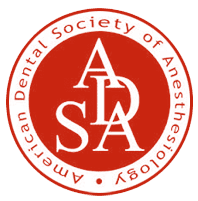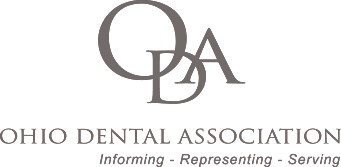POST-OPERATIVE INSTRUCTIONS
Tooth extraction is a minor surgical procedure. Therefore, it is natural that temporary changes will occur in the mouth afterward. You’ll be back to normal functioning typically in just a few days. Sometimes the after-effects of oral surgery are quite minimal, so not all of these instructions may apply. Common sense will often dictate what you should do. However, when in doubt, always follow the instructions herein and those given by Dr. Steve Shufflebarger. If you have any questions, you can contact the office.
Although, the post-operative care is fully detailed in these instructions, here are your main key points to a fast recovery after your surgical procedure:
- REMOVE THE GAUZE 1 HOUR AFTER THE PROCEDURE, REPLACE IF NECESSARY
- ICE FOR FIRST 48 HOURS, FOR 30 MINUTES AT A TIME
- IF YOU ARE A SMOKER OR VAPE, DO NOT SMOKE OR VAPE FOR 5 DAYS
- DO NOT SUCK THROUGH A STRAW FOR 5 DAYS
- START SALT WATER RINSES 24 HOURS AFTER THE PROCEDURE AND CONTINUE FOR 2 WEEKS, 5 TIMES PER DAY
- DO NOT BRUSH YOUR TEETH FOR 24 HOURS AND DO NOT DIRECTLY BRUSH THE EXTRACTION SITE
- LIMIT STRENUOUS ACTIVITY FOR 3-5 DAYS AFTER SURGERY
DAY OF SURGERY
FIRST HOUR:
Bleeding: After an extraction, a blood clot forms in the tooth socket. This clot is an important part of the normal healing process. You should therefore, avoid activities that might disturb the clot.
Dr. Shufflebarger has placed a gauze pack on the extraction site to limit bleeding and confine the blood while clotting takes place. This gauze pack should be left in place for 1 hour after you leave the office. Do not chew on the pack, rather bite down gently but firmly on the gauze packs that have been placed over the surgical areas, making sure they remain in place. There may be some very light oozing of blood for the first 24 hours after the pack is removed. This is normal and requires no interventions.
If bleeding is moderate or heavy following the initial gauze removal, fold several pieces of clean gauze into a pad thick enough to bite on. Dampen the pad and place it directly on the extraction site. Apply moderate pressure by closing the teeth firmly over this pad. Maintain this process for about 30 minutes. If the pad becomes soaked, replace it with a clean one as necessary. A tea bag can be substituted for a gauze pad if necessary.
If the bleeding is severe and uncontrollable despite applying moderate pressure and following the directions above, you need to immediately go to the local Hospital Emergency Room.
Anesthetics: The length of time you experience numbness varies depending on the type of anesthetic you’ve received. While your mouth is numb, you’ll want to be careful not to bite your cheek, lip or tongue. The numbness should subside within several hours.
IF PROCEDURE WAS UNDER IV SEDATION: Please remember the Patient’s safety is our concern after sedation. The key items to remember after IV Sedation are as follows:
• Patient must be closely watched and monitored for a minimum of 6 hours or until the effects of sedation have worn off
• Patient must remain seated in an upright position for a minimum of 6 hours or until the effects of sedation have worn off
• Patient will need assistance walking
• Patient will need assistance with post-operative procedures as indicated in these instructions
• Patient is unable to drive or operate machinery for 24 hours
• If Patient is having difficulty breathing or swallowing or experiencing other emergency circumstances, the escort should report to Dr. Shufflebarger (937-532-5693) and/or emergency medical assistance (911)
EXERCISE CARE:
Do not disturb the surgical area today. Certain actions will harm the extraction site and may require additional treatment. Such items you must avoid are as follows:
1. Do not suck, rub or bite on the extraction site.
2. Do not smoke for 5 days.
3. Do not rinse your mouth vigorously for 5 days.
4. Do not drink through a straw for 5 days and do not drink from a bottle such as a water bottle for 5 days.
5. Begin brushing 24 hours after the procedure. Avoid hard brushing of the teeth next to the healing tooth socket. You should, however, brush and floss your teeth thoroughly. Gently rinse your mouth afterward with water.
6. Limit strenuous activity for 3-5 days after the surgery. This will reduce bleeding and help the blood clot to form. Some procedures or circumstances may require additional limitations as instructed by Dr. Shufflebarger and staff.
Bleeding: Bleeding should never be severe. Intermittent bleeding or oozing overnight is normal. If bleeding continues, biting on a moistened tea bag wrapped in a paper towel is often enough to control excessive bleeding. Remember, though, that a lot of saliva and a little blood can look like a lot of bleeding. If heavy bleeding continues, call the office and/or go to the emergency room.
Swelling: After a tooth is removed you may have some discomfort and notice some swelling. To help reduce swelling and expedite recovery, use an ice pack on the outside of the affected cheek(s) for the first 48 hours. The use of ice is very important in your healing process. We ask that you use ice for 30 minutes at a time for the first 2 days after surgery. If it is helpful, you can remember to place ice on your cheeks on the hour. For example, ice at 11:00, remove the ice at 11:30, ice at 12:00, remove the ice at 12:30, ice at 1:00, remove the ice at 1:30, etc. If you have been prescribed medicine for the control of swelling (Medrol Dosepack), be sure to take it as directed and start it as soon as possible on the day of surgery. If you are having difficulty breathing or swallowing as a result of swelling you should report this immediately to Dr. Shufflebarger (937-532-5693) and/or obtain emergency medical assistance (911).
Paresthesia: Paresthesia is the altered sensation of the nerve and typically is a result of compression or inflammation on the nerve. It is the feeling of numbness, tingling, prickling or “pins and needles”. If you have significant lingering numbness in your lips, chin, tongue or other parts of your face that remain after 2 days, please contact the office right away. Although this is a common complication after surgical procedures, we need to be aware and assist you with the right intervention or treatment to try and reduce the duration.
Pain: Unfortunately most oral surgery is accompanied by some degree of discomfort. You may have been given prescription medication to control pain and prevent infection. Use it only as Dr. Shufflebarger has directed. If the medication prescribed does not seem to work for you, do not increase the dosage. If you have prolonged or severe pain, swelling, bleeding, or fever, call the office immediately. We will give you instruction on how to care for your problem.
Nausea: Nausea is not uncommon after surgery. Often medications are the cause. Nausea can be reduced by preceding each pain pill with a small amount of soft food and moderate volumes of milk or water. Try to keep taking fluids and possibly minimize taking certain medications. If you do not feel better, please call us.
Diet: After the extraction, drink lots of liquids and eat soft, nutritious foods. Avoid alcoholic beverages and hot liquids and foods. It is best to avoid foods with seeds, nuts, hulls, or sharp edges like nuts, popcorn, chips, or sharp items which may damage or become lodged in the socket areas. Begin eating solid foods the next day or as soon as you can chew comfortably. For about two days, try to chew food on the side opposite the extraction site if possible. Food examples: Eggs, yogurts, oatmeal, pancakes, smoothies, peanut butter, white bread sandwiches with soft lunch meat (no seeded bread), soup, hot dogs/sausages without tough casings, pastas, macaroni and cheese, baked fish of any variety, soft stewed/shredded meats like chicken or pork, soft cooked vegetables, potatoes, cheeses, cottage cheese, canned or soft seasonal fruits like peaches or pears, applesauce, ice cream/frozen yogurt/sorbet/milkshake (without fruit seeds like strawberries), and pudding.
INSTRUCTIONS FOR THE SECOND AND THIRD DAYS AND THEREAFTER
Rinsing: Beginning 24 hours after the extraction, gently rinse your mouth with warm salt water (half a teaspoon of salt in an 8 oz. glass of warm water). Rinsing after meals is important to keep food particles out of the extraction site, but remember not to rinse your mouth vigorously. Avoid using other mouth rinses or mouthwash during this healing period. Rinsing is necessary for 2 weeks after your surgical procedure and should be done 5 times per day and especially after you eat.
Oral Hygiene: It is important to continue to brush and floss your teeth thoroughly twice a day. Refrain from brushing for 24 hours after the procedure. The tongue should also be brushed. This will help eliminate the bad breath and unpleasant taste that is common after an extraction. Always use a soft bristled brush so that you do not injure the tissues in your mouth.
Healing: A certain amount of pain must be expected with all types of surgery. The third, fourth or fifth days after surgery are generally most uncomfortable and there is usually some swelling. On the sixth day or after approximately 1 week, you should be more comfortable, and, although you may still be swollen, can usually start to notice some improvement in symptoms. Remember however, age plays a factor and sometimes with age the discomfort can last longer. The remainder of the post-operative course should be gradual, steady improvement. If you don’t see continued improvement please call the office.
SINUS PRECAUTIONS
(IF INSTRUCTED OF SINUS PERFORATION OR WARNED SINUS PRECAUTIONS MUST BE FOLLOWED)
In order to assist with the healing of your sinus membraneit is important that you avoid the following for 2 weeks unless specifically advised by Dr. Shufflebarger of a different time frame:
- Avoid pressure changes (ex: straws, smoking, vaping, water bottles, etc.)
- Do NOT blow your nose. If necessary, just wipe your nose. If you need to sneeze, do not hold it in, and sneeze with your mouth open. As an option, you may use nose spray (Neo-Synephrine) for 4 days following the procedure.
- Avoid spitting
- Avoid wind instruments
Please note that nose bleeding for 1-2 days following the procedure can be expected. Nose bleeding for longer than 2 days would be out of the ordinary and you should call the office. Additionally, if you notice any air/fluid exchanges between your nose and mouth, please contact the office so we are aware.
THANK YOU FOR ALLOWING US TO ASSIST YOU WITH YOUR NEEDED SURGICAL CARE It is our desire that your recovery be as smooth and pleasant as possible. Following these instructions will assist you, but if you have questions about your progress, please call the office. If possible, calling during office hours will afford a faster response to your question or concern. Telephone calls only requesting narcotic (pain killer) prescriptions will not be returned. We are willing and will always offer post-operative care to make sure you are healing properly and can address any concerns you may have. At a post-operative care visit determination can be made as to whether any additional medications would be justified or necessary due to noted pathology. We hope you have a quick recovery period and heal well after your surgical procedure. Please contact the office (937-532-5693) if you need assistance.






